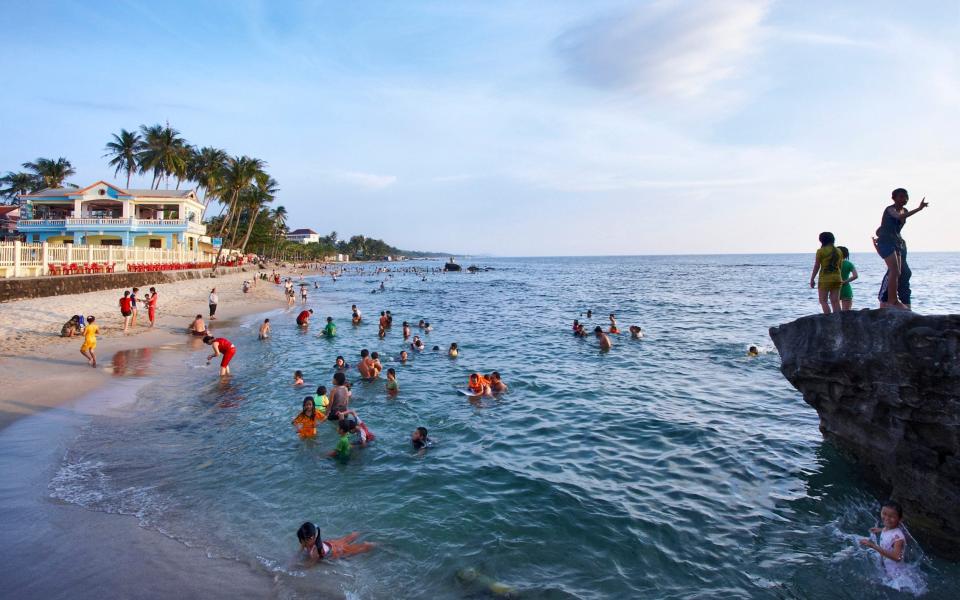Will we need a third jab to travel in 2022?

As booster jabs are rolled out across the Western world and more evidence emerges about the waning protection of our current Covid vaccines, thoughts have turned to the impact this may have on international travel. Many countries framed their entry rules around the perceived ‘silver bullet’ of the vaccine and may well continue down this path, updating their border requirements as third doses become more widespread. In the UK too, it’s not unthinkable that restrictions could eventually increase on those who are simply double-jabbed.
In the clearest sign yet that the UK Government’s concept of ‘fully vaccinated’ could soon change, Care Minister Gillian Keegan told Sky News last week that the vaccine passport concept will “evolve over time as the third dose comes in”. Given that the current rules for unvaccinated or partially jabbed travellers to the UK are among the most stringent in Europe, involving home quarantine and multiple pricey PCR tests, the effect could be significant for those without access to a booster, notably the under-50s for whom no third-jab timeline has been announced. Still, the UK’s longer spacing between doses (eight to 12 weeks) could limit the impact, as most younger travellers were only double-jabbed in the last few months, which could preserve their vaccinated status for longer than countries who administered both jabs within three weeks.
Already some countries have put an expiry date on vaccination status. Back in summer, both Austria and Croatia quietly announced that they wouldn’t consider anyone who had received their last dose more than 270 days (nine months) earlier as fully vaccinated. This has since been extended to a year, but demonstrates a clear lack of confidence in the long-lasting protection of vaccines. In September, Switzerland followed suit, while Vietnam's tentative reopening of its tourist island, Phu Quoc, next month comes with the stipulation that only those double-jabbed under a year ago can enter.
Elsewhere, Israel has put an 180-day (six-month) limit on its domestic Covid passes, which are used to access indoor venues such as restaurants and bars. This raises the possibility that the emergence of the third jab could alter holidays beyond border rules – particularly as Covid passes are in use across many of the most popular European holiday destinations, including France and Italy.

Jenny Southan, founder and CEO of Globetrender, a travel trends forecasting company, expects more countries to redefine the term 'fully vaccinated' and for the "ebb and flow of restrictions on international travellers to continue". However, she hopes that travellers who aren't considered up-to-date with their jabs "may only need to take one or two extra tests to cross borders – and with any luck these will be the cheaper lateral flow tests, which are now considered more reliable than previously thought."
Certainly, strides have been made to simplify travel in recent months and with holidaymakers now growing accustomed to the increased admin involved in heading abroad, an additional – and relatively cheap – rapid test may not seem like such an arduous undertaking.
However, before countries reimpose restrictions on travellers yet to receive a booster, they might consider the potential damage to their already decimated tourist industries. Julia Lo Bue-Said, CEO of Advantage Travel Partnership, points out that “with a country’s Covid entry requirements already influencing the destination of choice for some travellers, imposing vaccination expiry dates as a condition of entry on top of already complex rules will be alienating a significant number of people who are unlikely to receive a booster for months.”
She adds: “At a time when vaccination rates across western Europe are high and the world is unlocking, we should be looking to remove restrictions instead of imposing more. Every nation should remember the world is still a big place and there is always another choice.”
Indeed it could be unwise to potentially exclude younger travellers and submit to yet another lost or damaged season. However, it is difficult to imagine that countries who have rigidly stuck to draconian border restrictions for nearly two years, such as Australia, New Zealand and swathes of Asia, will not be influenced by the nations who have already put a sell-by date on vaccine certificates.

While predicting every twist and turn of this pandemic has proved a futile exercise, it seems likely that receiving a third dose will make travel next year more straightforward. In terms of the holiday outlook for 2022, Paul Charles, CEO of travel consultancy The PC Agency, anticipates a “combination of vaccines and tests.”
He states: “Until most countries reach 80 per cent vaccine rollout, governments will continue to put restrictions in place at their borders. They will want proof that individuals are up-to-date with boosters so that maximum immunity can be guaranteed, reducing the risk to countries from those visiting.”
As for a timeline to travel normality, Paul suggests 2023, at which point he sees Covid being “highly manageable and tougher border controls downgraded to make travel more seamless on the back of lower risk.”
Interestingly, he predicts that entry and passenger locator forms will remain longer term, as they “provide so much vital information which officials have never had such easy access to before.”
In this respect, international travel may never return to the way it was, but what remains to be seen is whether the rules will become as second-nature as post-9/11 security protocols, or if Covid continues to cast a long shadow over our holidays.


